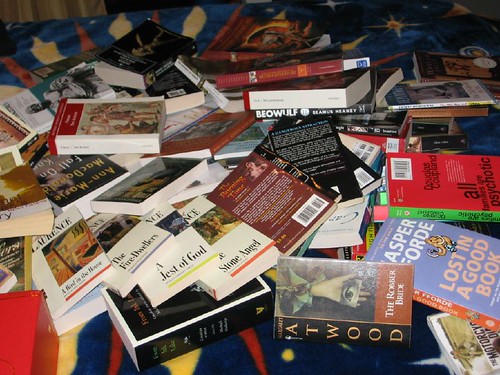The world of classical Chinese poetry is rich with emotional depth, vivid imagery, and profound philosophical insights. Among its most celebrated figures are Li Bai, Du Fu, and Su Shi, whose works not only reflect their individual experiences but also encapsulate the cultural and historical contexts of their times. This exploration delves into the representative works of these masters, offering a detailed analysis that highlights their themes, styles, and enduring influence.
A Captivating Prelude: The Poet’s Journey
Imagine a scholar in the Tang Dynasty, sitting alone in a quiet courtyard under the moonlight. With a cup of wine in hand, he gazes at the stars and reflects on his life, love, and the beauty of nature. This moment of solitude inspires him to write verses that capture his innermost thoughts. This scene encapsulates the essence of poetry during this golden age—a blend of personal introspection and universal truths.
Li Bai: The Romantic Poet
Li Bai (701–762), often referred to as the “Immortal Poet,” is renowned for his lyrical style and deep appreciation for nature. His poetry frequently explores themes of love, friendship, and the fleeting nature of life.
Representative Work: “Drinking Alone Under the Moon”
In this poem, Li Bai describes an evening spent drinking alone under the moonlight. The poem opens with a vivid scene:
“Amidst the flowers I am alone with my pot of wine;
Drinking by myself, I raise my cup to invite the moon.”
Here, Li Bai uses imagery to create a serene atmosphere that reflects both solitude and companionship with nature. The moon becomes a symbol of unattainable beauty and fleeting moments.As he continues, he expresses a sense of longing:
“I sigh for the moon cannot drink;
My shadow follows me silently.”
This line conveys a deep sense of loneliness despite the beauty surrounding him. The shadow represents his isolation—a poignant reminder that even in moments of joy, solitude can linger.
Themes in Li Bai’s Poetry
- Transience of Life: Li Bai often reflects on the ephemeral nature of existence, urging readers to appreciate beauty while it lasts.
- Connection to Nature: His poems frequently celebrate natural landscapes as sources of inspiration and solace.
- Loneliness and Longing: Many works explore feelings of isolation, particularly in relation to love and friendship.
Du Fu: The Poet Sage
Du Fu (712–770) is often regarded as one of China’s greatest poets due to his ability to weave personal experiences with social commentary. His works reflect a deep concern for the suffering of others and the turmoil of his times.
Representative Work: “Spring Prospect”
Written during a period of political strife, “Spring Prospect” captures Du Fu’s observations:
“The country is broken; yet mountains and rivers remain;
In spring grass and trees flourish.”
The juxtaposition between destruction and renewal highlights Du Fu’s resilience amidst chaos. He uses nature as a metaphor for hope—despite political turmoil, life continues.The poem further expresses his sorrow:
“Feeling the times; flowers draw tears;
Hating separation; birds alarm the heart.”
These lines convey profound emotional depth as Du Fu intertwines personal grief with broader societal issues. The imagery evokes empathy for those suffering from war while reflecting on his own pain.
Themes in Du Fu’s Poetry
- Social Responsibility: Du Fu’s works often address social injustices and express compassion for the marginalized.
- Historical Reflection: His poetry serves as a historical document that captures the complexities of his era.
- Unity with Nature: Like Li Bai, Du Fu finds solace in nature but often contrasts it with human suffering.
Su Shi: The Versatile Master
Su Shi (1037–1101), also known as Su Dongpo, was not only a poet but also a statesman and calligrapher. His versatility allowed him to explore various themes in his poetry, ranging from personal reflections to philosophical musings.
Representative Work: “Red Cliff”
In this poem, Su Shi reflects on a historical battle at Red Cliff while contemplating life’s impermanence:
“The river flows eastward;
The waves wash away heroes.”
This opening line captures both nostalgia for past glories and an acknowledgment of time’s relentless passage. Su Shi uses historical events as metaphors for personal reflection—reminding readers that all achievements are ultimately transient.He continues with contemplative verses:
“A few times I have seen you;
Yet how many times have I missed you?”
This expression of longing resonates deeply with readers who have experienced loss or separation. Su Shi’s ability to blend historical context with personal emotion creates a powerful connection.
Themes in Su Shi’s Poetry
- Philosophical Inquiry: Su Shi often explores existential questions about life’s purpose and human relationships.
- Historical Reflection: His poetry frequently engages with historical events, using them as lenses through which to examine contemporary issues.
- Emotional Depth: Su Shi’s works convey complex emotions—ranging from joy to sorrow—reflecting his multifaceted personality.、

Conclusion:
The works of Li Bai, Du Fu, and Su Shi exemplify the richness of classical Chinese poetry through their exploration of profound themes and emotional depth. Each poet brings a unique perspective shaped by their experiences and historical contexts.Li Bai’s romanticism invites readers to revel in beauty while acknowledging loneliness; Du Fu’s social consciousness urges empathy for those suffering amidst turmoil; Su Shi’s philosophical musings encourage introspection about life’s impermanence.As we delve into their representative works—“Drinking Alone Under the Moon,” “Spring Prospect,” and “Red Cliff”—we uncover not only artistic expressions but also timeless truths about humanity that continue to resonate today. Through their poetry, these masters connect us across generations, reminding us that art has the power to transcend time and speak to our shared human experience.
